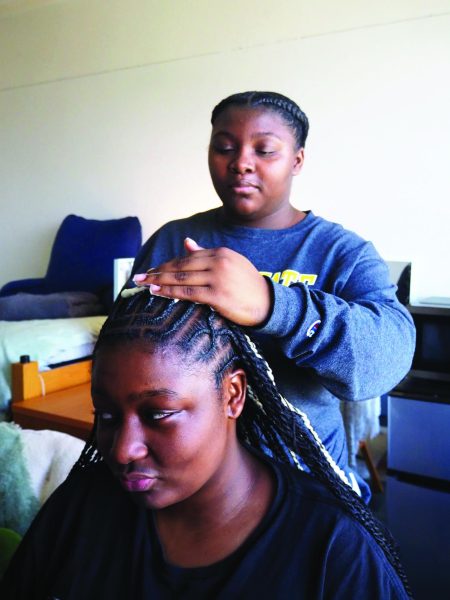Rural lawyer tells WSC what law in small-town Nebraska is all about
April 18, 2018
A Commentary
Are you a Wayne State College student interested in practicing law? If so, solid choice. If not, I’m sure you are pursuing a career equally as interesting and I’ll applaud you for that. But if you are, in fact, interested in law, I hope you caught Deputy Wayne County Attorney Eric Knutson’s talk last Monday afternoon.
An alum of both WSC and the University of Nebraska School of Law, Knutson offered a vast amount of insight into the world of a rural lawyer. I’m not going to lie, being a Rural Law Opportunities Program (RLOP) student here at WSC, Knutson’s honesty scared me a bit. Talk of thousands of dollars in debt and pronouncing bodies dead had me a little tentative about the law profession. However Knutson made the negatives seem minuscule when he began talking about how rewarding rural law practice can be.
Having the reputation as a well-respected lawyer, Knutson plays many roles in the community of Wayne.
“I’m a mock trial judge, I’ve gone to career fairs, I’m involved with Providence Medical Center, Wayne Community Foundation, president of the Wayne Library Foundation, a CCD teacher, and the civil service commission, among other things,” Knutson said. “My wife says I say yes to too many things.”
After hearing him talk of his never-ending involvement I, along with Knutson’s wife, think it sounds like he has a lot on his plate.
While this kind of involvement may turn some away from the practice of rural law, hearing Knutson talk of his community involvement made me even more excited for my future as a rural lawyer.
One aspect of Knutson’s talk I really appreciated was the honesty with which he spoke of his law experience. Instead of pretending he had done everything right, he was straightforward with what he wished he had done differently. For example, from Knutson, I learned that I should study more than “just a little” for the Law School Admittance Test (LSAT) if I want to reduce the 30-year process of paying off law school debt.
While I’ve heard quite a few presentations over the course of this year already, Knutson’s offered a fresh perspective—one that I particularly appreciated. Instead of preparing an intricate presentation, he merely spoke truth that worked to further interest me in the practice of rural law.
While I could potentially be in debt for 30 years after law school, hearing successful rural lawyers like Knutson helps reassure me that it will all be worth it.








